My understanding is that you can't do what I'm asking. If you look at the starred (*) commented errors in the code below, you can see what I'm trying to access. I feel like I need to be able to do this so that I can use a method to dynamically create many objects and then access all of those objects from other objects.
Is there a way to do this that I'm missing, or am I just messing something up? If not, how should I go about doing this to enable me to get the same functionality as below? If there's any way to do this other than passing the objects around, it would be appreciated (passing objects seems like so much work - especially with multi-dimensional arrays of objects - there should be an easy way to instantiate package-private objects that can be accessed anywhere else in the package). But if passing is the only way, please let me know the best way to do it, especially when I'm passing a two-dimensional array of a bunch of objects. Thanks!
package simpleclasswithinclasstest;
class Game {
static int boardSize;
Engine gameEngine;
Game() {
}
public void run() {
gameEngine = new Engine();
gameEngine.play();
}
public int getBoardSize() {
return boardSize;
}
}
class Engine {
int boardSize;
Engine() {
}
public void play() {
this.boardSize = currentGame.getBoardSize(); // *****1 Error is here.
// *****It doesn't recognize currentGame, but I want it to.
}
void doNothing() {
}
}
class Board {
Board() {
}
void Test() {
gameEngine.doNothing(); // 2 *****Error is here.
// *****It doesn't recognize gameEngine.
}
}
public class SimpleClassWithinClassTest {
static Game currentGame;
public static void main(String[] args) {
currentGame = new Game();
currentGame.run();
}
}
